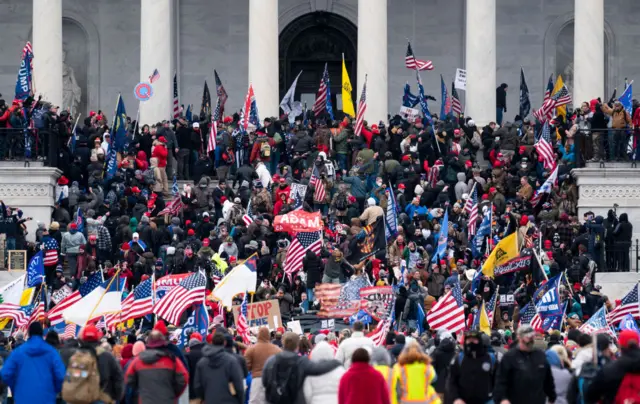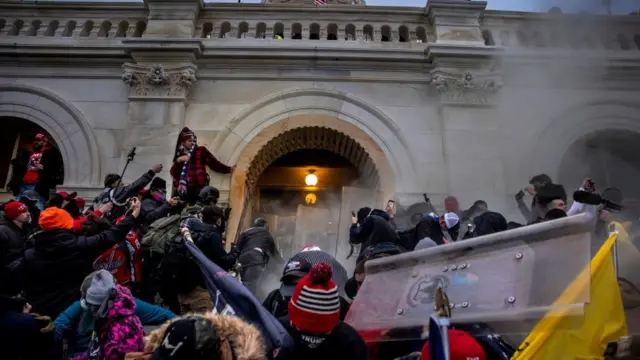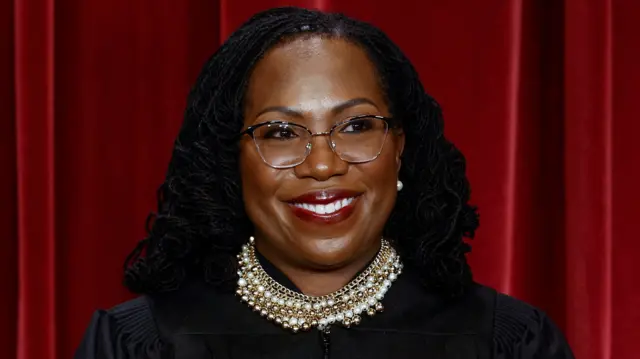Trump doesn't deserve another chance, Colorado lawyer sayspublished at 17:15 GMT 8 February 2024
 Brandon Drenon
Brandon Drenon
Reporting from Washington DC
More now from that exchange just now between Justice Brett Kavanaugh and Jason Murray, the Colorado lawyer arguing to keep Trump off the state's ballot.
Kavanaugh was asking how the Supreme Court should read into the "vague language" of the Constitution at the centre of this case - Section 3 of the 14th Amendment.
One of the main arguments between lawyers and the justices is whether states have the power to act on Section 3 for the presidency or if Congress must first pass legislation to grant states that power.
Murray argues that waiting on Congress or a federal prosecution is too slow.
"This case illustrates the danger of refusing to apply Section 3 as written, because the reason we're here is that President Trump tried to disenfranchise 80 million Americans who voted against him and the Constitution doesn't require that you be given another chance."




